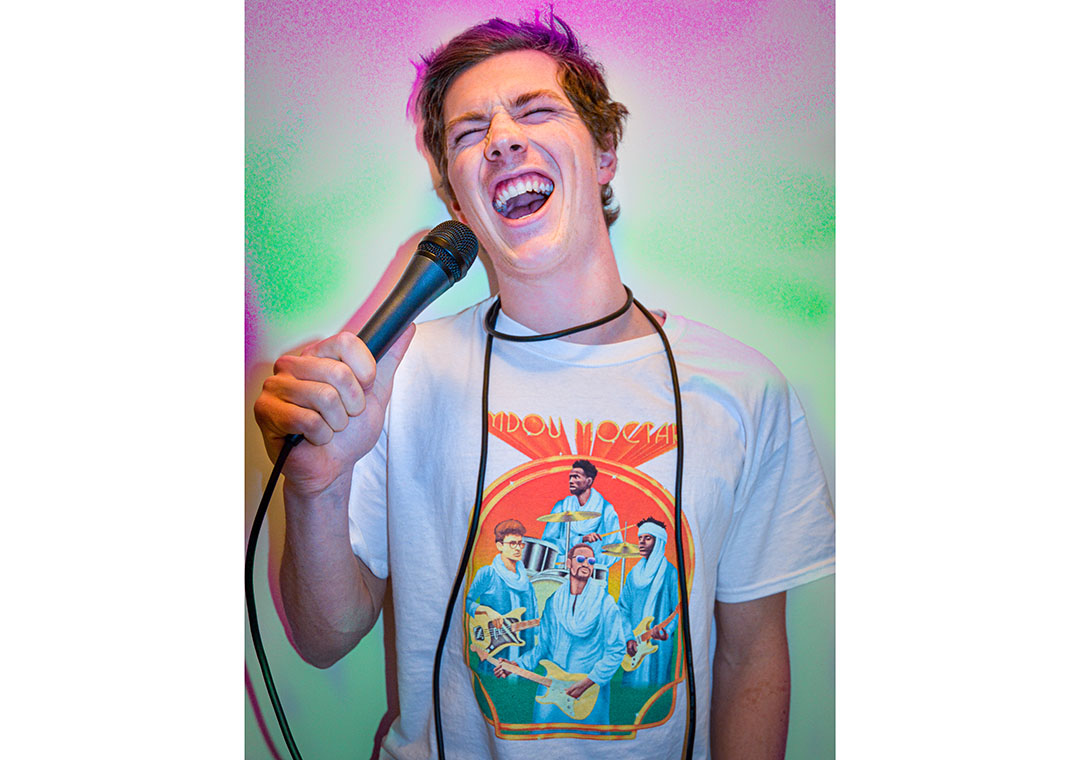How loud can you shout? If you screamed your lungs out in downtown Toronto, a hundred people might hear you. But even when I whisper, I’m heard all across the GTA and beyond, thanks to CIUT 89.5 FM (CIUT), the University of Toronto’s campus radio station since 1987.
Tracks From Abroad
I started a radio show called Tracks From Abroad in my third year at U of T, and I interview U of T students from all around the globe every week. From my bedroom in Toronto, I get to visit countries like Brazil, Russia, and Nigeria. Working on the show has been one of my most rewarding experiences at university.
According to the description of the show on the CIUT website, Tracks From Abroad is “an ongoing series featuring international students from the University of Toronto who share music from their corner of the world while discussing whatever else comes to mind.”
So, stay tuned, because today I’m going to tell you about Tracks From Abroad, Canada’s radio history, and about CIUT, which is celebrating 35 years on the FM dial.
From sidewalk interviews to a radio show
Over the summer, even though I had no prior experience in radio, I threw some microphones in a bag and biked to campus looking for a story. When a candidate for parliament stopped me on the street to ask for my vote, I asked him for an interview, and we made a show called Speaking to Political Underdogs, which pitted the People’s Party of Canada against the Ontario Communists in a battle of wits.
It was a gonzo style of radio — my on-the-street interviews were literally recorded on the sidewalk — but it sure was fun. With a few episodes under my belt, I pitched Tracks From Abroad to CIUT and my show was put on the air in October 2021.
I soon reached out to bigger acts, and in December, the Afro-fusion artist Shopé called in. His family immigrated from Nigeria to Toronto. He studied human biology at U of T, and it was during a lecture in Convocation Hall when he fully committed himself to pursuing music as a career. After finishing his degree, Shopé went on to win CBC’s Searchlight in 2019, and on Tracks From Abroad, he shared his vision of becoming a cultural ambassador between Nigeria and Canada.
Learning more about the U of T community
My favorite parts of Tracks From Abroad are the U of T student interviews. Together, we talk about everything from politics to foreign movie stars, and I’m happy to be able to amplify the voices of U of T’s diverse community.
My most recent guest, Mathis Roy Vigne, told me that his dad is a professional Haitian skier even though the island doesn’t have a flake of snow! And another guest, Kiyan Matisse, took me on a field trip to Little Tehran on Yonge Street where I tried kebab over rice with sumach. Everybody is welcome on Tracks From Abroad, and my goal is to hear music from every part of the world.
The significance of radio
Radio has played an important role throughout Canadian history. In the early twentieth century, Canada’s rough geography made communication difficult for isolated communities. As broadcast ranges increased, radio played a major role in unifying Canadians across the country.
CBC was responsible for relaying World War II correspondences through its Overseas Service program, and once the war ended, they collaborated with the Canadian government to create a multilingual international service that would go on to become Radio-Canada International. Today CBC operates radio stations nationally, even providing programs in native languages to those living in the far North.
Many people thought that television would kill radio — however, radio continues to offer opportunities for students seeking work in the media industry. Rogers Media Inc, Bell Media Radio, and the CBC have operations in downtown Toronto, and these media giants each have their own programs being broadcasted on radio and online.
If you are interested in radio, CIUT can give you the skills to help you pursue a job in media. We’re always looking for volunteers to join, and during the pandemic, my show has helped to keep me creative.
In school we often work on projects with instructions, oversight, and grades. But when I got the chance to make something of my own — something where I could learn about the outside world and my fellow students — I could express myself, and the potential seemed endless.


